There was revolution and plenty of records in this decade as our 'greatest moments' series continues to mark the 80th anniversary of AW
Wottle springs a surprise
The favourite for men’s Olympic 800m in 1972 was European champion Yevgeniy Arzhanov of the Soviet Union, who hadn’t been beaten for four years and had a strong sprint finish. American Dave Wottle, thought of by most as a mile specialist, had shocked everyone when he equalled the world record of 1:44.3 in the USA Olympic trials but, with no international experience and a bout of tendonitis, he was thought of as a long shot for a medal.
After 200 metres, Wottle, wearing a golf cap, was languishing 10 metres behind the other seven runners and was still last at 400 metres. Arzhanov put in an extravagant kick down the back straight to move from sixth to first, led five runners off the bend and then kicked a few metres clear. He looked to be heading to a comfortable victory, but the double kick had an effect and he began to slow 30 metres out.
Wottle had moved up to sixth 120 metres out and then fourth into the straight. Swinging wide, he passed Robert Ouko 40 metres out to move to third and then Mike Boit with 20 metres left. He overtook a fading Arzhanov with virtually his final stride as the Ukrainian threw himself across the line. Wottle, with 1:45.86, took the verdict by three hundredths of a second. He then forgot to take off his cap during the medal ceremony.
Shorter sparks a running boom
Upon entering the Olympic stadium in Munich on course for marathon gold, Frank Shorter was left somewhat bemused by the boos that were coming from the crowd. Unbeknown to the American at the time, an imposter had jumped onto the track just before the leaders arrived and began to take the acclaim, until the spectators began to work out what was going on.
Just as the offender was apprehended, so Shorter strode on to the track but the jeers soon turned to cheers as the man who was born in Munich and had finished fifth in the 10,000m at those Games, sealed his victory in 2:12:19. His performance has been credited as starting the first running boom in the US.
Mary Peters in Munich
Having finished fourth in the pentathlon in Tokyo and ninth in Mexico in 1968, it was at her third Olympics that Mary Peters produced the golden performance that would echo down the years.
After the opening event, the 100m hurdles, the then 33-year-old was just six points off top spot and then moved into the lead after the shot put, finishing 301 points ahead by the end of day one, which also included the high jump.
Inspired by the home crowd, West German Heide Rosendahl-Ecker – who had won long jump gold – drastically narrowed the gap with her favoured discipline and the contest went down to the wire in the 200m.
The top two were drawn in the same heat, with Rosendahl-Ecker coming home ahead of her rival to score a then world record of 4791 points. However, 1.2 seconds later, Peters crossed the line, giving her a winning – and record-breaking – 4801.

Bold Bayi strides out
Fireworks flew on the final day of the 1974 Commonwealth Games in Christchurch when the unheralded Filbert Bayi produced one of the most memorable, and audacious, pieces of middle-distance running ever seen to win 1500m gold.
Against a top class field that included home favourite John Walker, the 20-year-old Tanzanian led from gun to tape and broke the world record with a time of 3:32.2, taking almost one second off Jim Ryun’s 3:33.1 that had been set in 1967.
Walker tried to chase him down but was unable to get there as Bayi won his nation’s first Commonwealth Games gold medal in any sport. An Olympic match-up between the two was highly anticipated but, due to the African nations boycotting Montreal in 1976, Bayi was unable to compete. Walker went on to take 1500m gold.
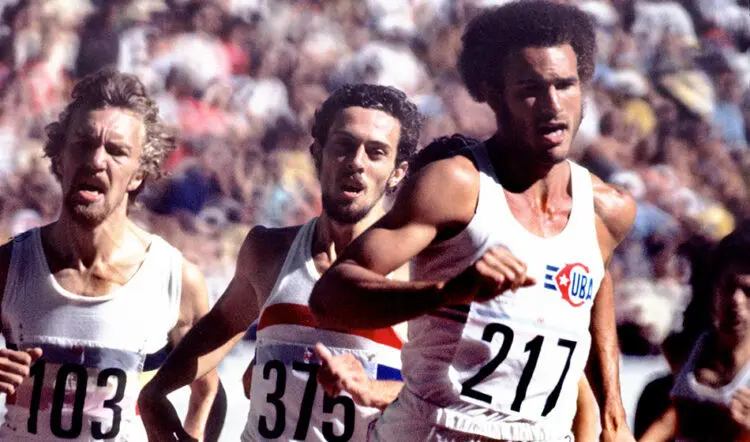
Juantorena at the double
Alberto Juantorena remains the only athlete to have won 400m and 800m gold at the same Olympic Games after managing the feat in 1976.
After just missing out on qualification for the 400m final in 1972, he was virtually unbeatable over the distance for the following two years before the setback of having to undergo two ankle operations in 1975. He began running the 800m in 1976 as part of his recovery process but his two-lap prowess soon became apparent.
In the Olympic 800m final, he used his huge stride to break the world record in a time of 1:43.5 and became Cuba’s first ever track and field gold medallist. In the 400m final, he was trailing America’s Fred Newhouse going into the closing stages but produced a finishing flourish to win in 44.26.
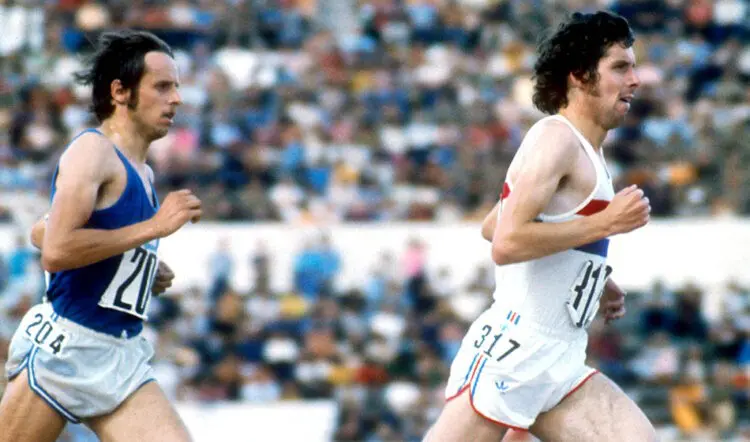
Viren’s double double
Having won 5000m and 10,000m gold at the Munich Olympics, Finland’s Lasse Viren had set his sights on repeating the feat in Montreal.
He completed the first part of his mission with 25-lap victory. Portugal’s Carlos Lopes led for most of the race before Viren passed him just before the bell and was ultimately a commanding winner, coming home almost five seconds clear in 27:40.38.
The 5000m was a far tighter affair as Viren held off Dick Quax, Klaus-Peter Hildenbrand, Rod Dixon and Brendan Foster to win in 13:24.76.
Viren also competed in the marathon in Montreal, finishing fifth.
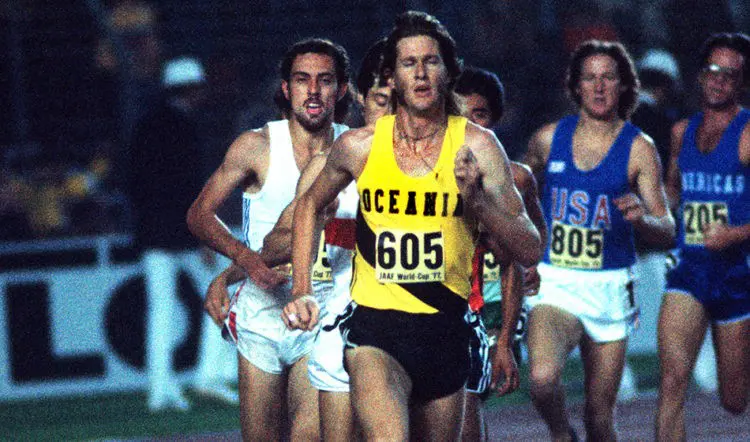
Ovett’s World Cup win
Steve Ovett went into the first ever IAAF World Cup, in Dusseldorf in 1977, as a promising young Brit yet to prove himself at the very highest level but ended it as the world’s most exciting runner. Olympic champion John Walker led down the back straight on the last lap in a fast race but the 21-year-old Ovett produced one of the greatest change of paces in history as he blasted an unparalleled 11.8 100m on the final bend.
Walker was so shocked, he dropped out on the final bend. Had the Briton run through the line he would have broken the European record as he went eighth all-time with his UK record of 3:34.5. Thomas Wessinghage was a distant second in 3:36.0.
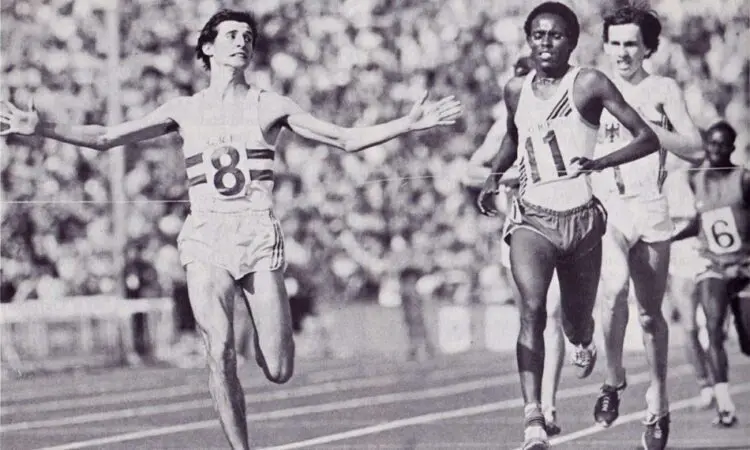
Coe’s record collection
In the summer of 1979, a 22-year-old middle-distance runner from Sheffield embarked on a world record-breaking spree that would change his life forever. During a memorable spell of 41 days, Sebastian Coe set new marks for 800m, 1500m and the mile as he became the most talked about athlete on the planet.
Coe’s main goal that year was mainly to finish his degree at Loughborough University. He had also trained through what British historians have dubbed “the winter of discontent” due to the endlessly bleak weather and trade union strikes.
Yet on July 5, 1979, he took more than a second off Alberto Juantorena’s world 800m record with 1:42.33 in Oslo. Just 12 days later he smashed John Walker’s mile record with 3:48.95, again in Oslo, followed by breaking Filbert Bayi’s 1500m mark in Zurich with 3:32.03.
Waitz masters the marathon
While making the move from the track to the marathon is now a well-trodden path, Grete Waitz was the first world-class female athlete to do so. She was a bronze medallist in the 3000m at the European Championships during the same year, 1978, when she decided to tackle 26.2 miles for the first time, in New York.
The Norwegian didn’t just win, she finished nine minutes clear and set a world record of 2:32:30.
Despite swearing she would never run another marathon, she returned to New York in 1979 and became the first woman to break 2:30, with a run of 2:27:33. In total, she set the marathon world record four times and won 12 marathon majors, as well as finishing second at the inaugural women’s Olympic event in 1984.
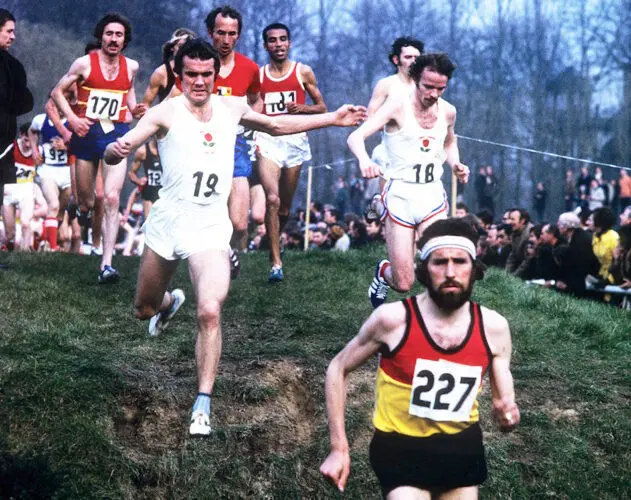
Did you know?
The first World Cross Country Championships were staged in 1973, in Waregem, Belgium.
